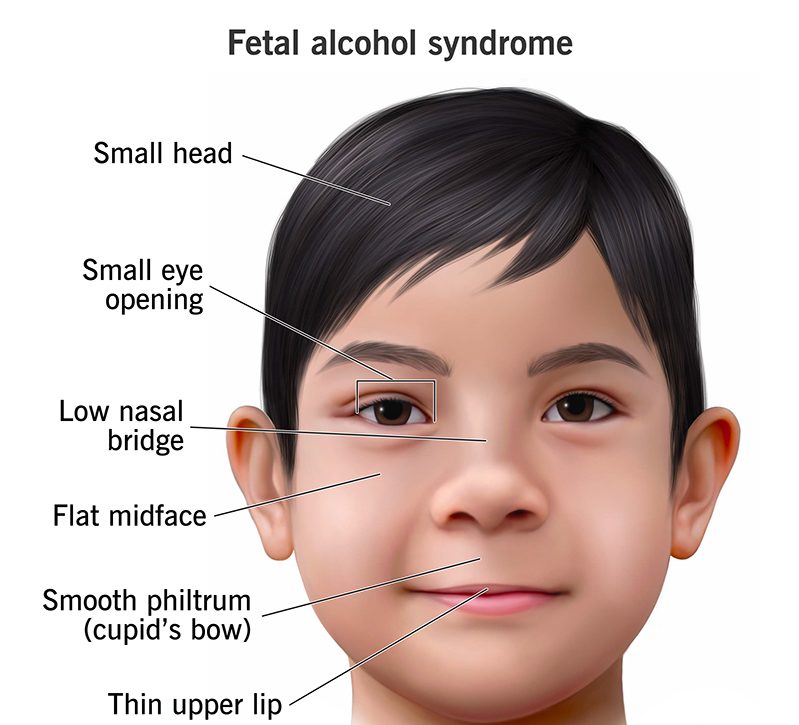Fetal Alcohol Syndrome (FAS) is a critical condition affecting countless lives worldwide. FAS develops when a pregnant individual consumes alcohol, leading to irreversible and lifelong impacts on the developing fetus. The effects range widely, often impacting physical, mental, and behavioral development. While FAS is the most severe of Fetal Alcohol Spectrum Disorders (FASDs), other conditions also fall under this umbrella, including Alcohol-Related Neurodevelopmental Disorder (ARND) and Alcohol-Related Birth Defects (ARBD). Unfortunately, FAS cannot be cured, but it can be prevented entirely if no alcohol is consumed during pregnancy. Through early intervention, care, and ongoing support, individuals affected by FAS can live more enriched lives.
At Brimex Medical, Inc., our intellectual and developmental disability support services aim to empower each patient to find their rightful place in the community. With early treatment, educational support, and customized care, we strive to help individuals with FAS lead fulfilling lives.
What is Fetal Alcohol Syndrome?
Fetal Alcohol Syndrome (FAS) is the most severe diagnosis within the Fetal Alcohol Spectrum Disorders (FASD) range, a spectrum of developmental conditions caused by prenatal alcohol exposure. While not every fetus exposed to alcohol develops FAS, those who do may experience a variety of physical, behavioral, and cognitive impairments that persist throughout life.
FAS can vary significantly among individuals. Some may have visible physical signs, while others have cognitive and social difficulties without clear physical markers. These differences underscore the broad range of symptoms associated with FASDs and highlight the importance of tailored support.
What are Fetal Alcohol Spectrum Disorders (FASDs)?
Fetal Alcohol Spectrum Disorders (FASDs) encompass several disorders caused by alcohol exposure during pregnancy, and FAS represents the most severe end of this spectrum. Key disorders include:
- Partial Fetal Alcohol Syndrome (pFAS): Individuals with pFAS exhibit some FAS characteristics, such as facial abnormalities, but do not meet the full diagnostic criteria for FAS.
- Alcohol-Related Neurodevelopmental Disorder (ARND): Those with ARND often struggle with attention, impulsivity, and academic performance, which affects judgment and social interactions.
- Alcohol-Related Birth Defects (ARBD): ARBD manifests in physical birth defects, often affecting vital organs like the heart, kidneys, and ears.
- Neurobehavioral Disorder Associated with Prenatal Alcohol Exposure (ND-PAE): Individuals with ND-PAE, exposed to significant amounts of alcohol prenatally, experience severe behavioral issues and cognitive impairments.
Each of these disorders carries its unique challenges, and individuals may require different levels of care, specialized education, and behavioral interventions. Support systems like those offered by Brimex Medical, Inc. ensure that patients with FASDs, particularly those with FAS, have access to personalized care aimed at fostering growth, independence, and community involvement.
Causes of Fetal Alcohol Syndrome
Fetal Alcohol Syndrome results from alcohol consumption during pregnancy. When alcohol enters the bloodstream, it passes through the umbilical cord to the developing fetus. Unfortunately, fetuses are unable to metabolize alcohol effectively, leading to prolonged exposure and potential damage, especially in the brain and central nervous system.
How Alcohol Affects Fetal Development:
- Cell Death: Alcohol can destroy cells in various parts of the body, disrupting normal development.
- Nerve Cell Disruption: Alcohol can impact the development and migration of nerve cells, leading to significant disruptions in brain function.
- Reduced Oxygen Supply: Alcohol restricts blood flow to the placenta, which limits oxygen and essential nutrients, impacting the fetus’s development.
- Toxic Byproducts: The byproducts of alcohol metabolism can accumulate in the fetal brain, causing lasting damage to brain cells.
The Importance of Early Abstinence: Alcohol can harm a developing fetus at any pregnancy stage, even before a person knows they are pregnant. Abstaining from alcohol throughout pregnancy is the only way to prevent FAS. At Brimex Medical, Inc., we advocate for alcohol-free pregnancies and offer resources to those seeking support.
How Much Alcohol Causes Fetal Alcohol Syndrome?
There is no safe amount of alcohol to consume during pregnancy. Any amount, even a single drink, can increase the risk of FAS. Because the effects vary greatly depending on individual factors and the stage of pregnancy, the safest course is complete abstinence from alcohol for those planning or already expecting a child.
Symptoms of Fetal Alcohol Syndrome
The symptoms of FAS can range from physical abnormalities to developmental and cognitive impairments. Here are some of the most common manifestations of FAS across different life stages:
Infants:
- Small head size and facial abnormalities, such as a smooth ridge between the nose and upper lip.
- Low body weight and short stature.
- Sleep disturbances and feeding difficulties.
Children and Adolescents:
- Developmental delays, including speech and motor skills challenges.
- Behavioral issues, such as impulsivity and hyperactivity.
- Difficulties with reasoning, judgment, and academic performance.
Adulthood:
- Challenges with maintaining employment and living independently.
- Increased risk of mental health disorders, including depression and anxiety.
- Difficulty with social interactions and relationships.
Each stage of life brings unique challenges for individuals with FAS. Early diagnosis and intervention can significantly improve outcomes, allowing individuals to develop adaptive skills and strategies for success.
Diagnosing Fetal Alcohol Syndrome
Diagnosing FAS can be challenging, as there is no single test to confirm its presence. Diagnosis typically involves a combination of physical examinations, behavioral assessments, and a detailed medical history. Some key diagnostic criteria include:
- Prenatal Alcohol Exposure: A confirmed history of alcohol consumption during pregnancy is often the first indication of potential FAS.
- Physical Markers: Specific facial characteristics and growth deficiencies often help identify FAS cases.
- Behavioral Observations: Cognitive and behavioral evaluations can help identify symptoms, particularly when no physical signs are present.
At Brimex Medical, Inc., we recognize the importance of an accurate diagnosis to provide tailored support and resources that can greatly enhance the quality of life for individuals with FAS and their families.
Treatment Options for Fetal Alcohol Syndrome
While FAS is not curable, early intervention and ongoing support can make a substantial difference in managing symptoms. Treatments may include:
- Medication: Medications can help address specific symptoms, such as hyperactivity, attention deficits, and mood disorders.
- Behavioral and Educational Therapy: Specialized therapy programs help individuals with FAS develop life skills, emotional regulation techniques, and social skills.
- Parental Training and Support: Parents and caregivers play a critical role in managing FAS. Training programs provide caregivers with tools to support their child effectively, establish routines, and address behavioral challenges.
Protective Factors for Improved Outcomes:
Certain protective factors can reduce the long-term impact of FAS. Early diagnosis, a stable and loving home environment, and access to educational and social services are all key elements in improving the quality of life for individuals with FAS.
Brimex Medical, Inc. offers a comprehensive range of developmental support services, designed to empower individuals with intellectual disabilities to achieve their potential and find their rightful place within the community.
Preventing Fetal Alcohol Syndrome
The only way to prevent FAS is to completely abstain from alcohol during pregnancy. Avoiding alcohol even while trying to conceive is essential, as early pregnancy is a critical developmental period. If a person has already consumed alcohol during pregnancy, stopping immediately can still reduce the risk of FAS.
Brimex Medical, Inc. is committed to raising awareness about FAS prevention and offers resources and support for expectant parents. Avoiding alcohol completely ensures a healthier pregnancy and a better future for the child.
Outlook and Prognosis for Fetal Alcohol Syndrome
FAS is a lifelong condition with symptoms that persist into adulthood. Individuals with FAS may face secondary challenges, including mental health issues, difficulty with employment, and social integration struggles. However, early treatment, educational support, and access to supportive services can greatly improve their quality of life.
At Brimex Medical, Inc., we stand by our patients and their families to provide resources and support that foster growth, self-advocacy, and fulfillment. Our commitment to intellectual and developmental disability support services ensures each patient finds a meaningful role within their community, empowering them to live as independently as possible.
A Note from Brimex Medical, Inc.: Our team of compassionate professionals is here to guide families affected by FAS through every stage of life. By working together, we can empower individuals to thrive, connect with their communities, and lead fulfilling lives. For more information, reach out to us at Brimex Medical, Inc., where we prioritize inclusivity, empathy, and personalized care in all that we do.

